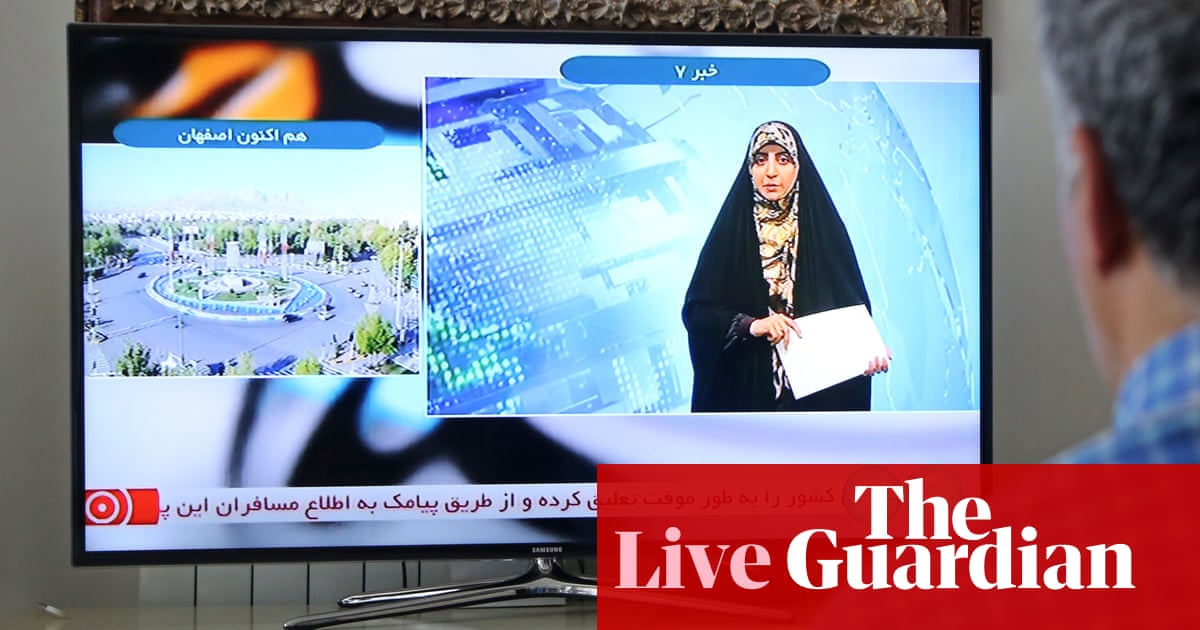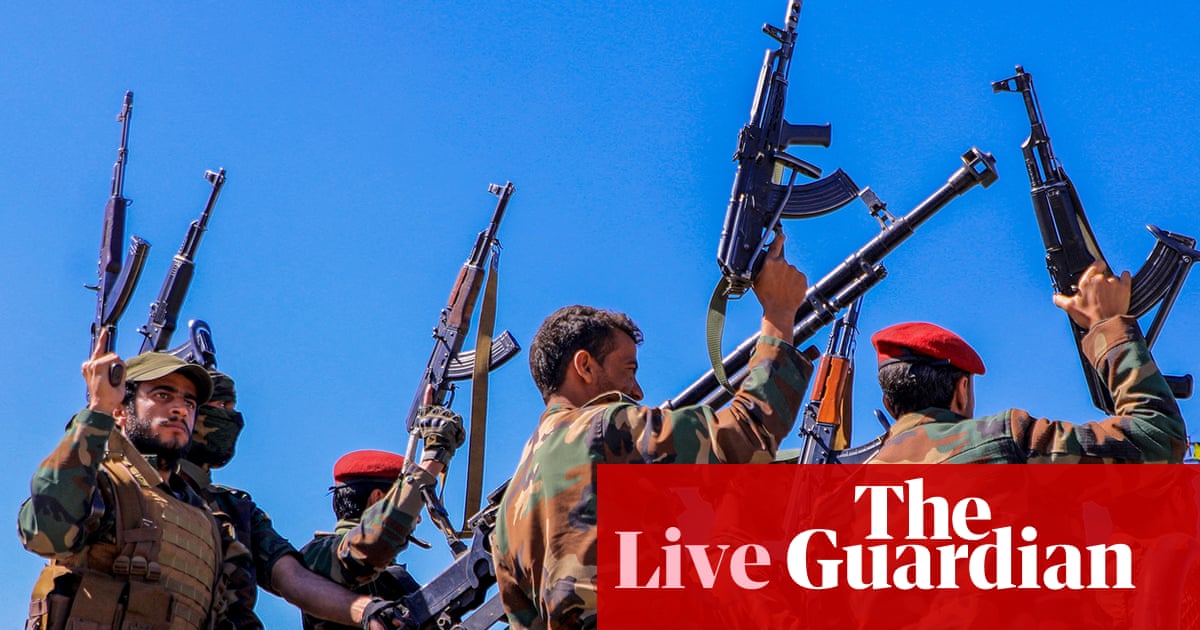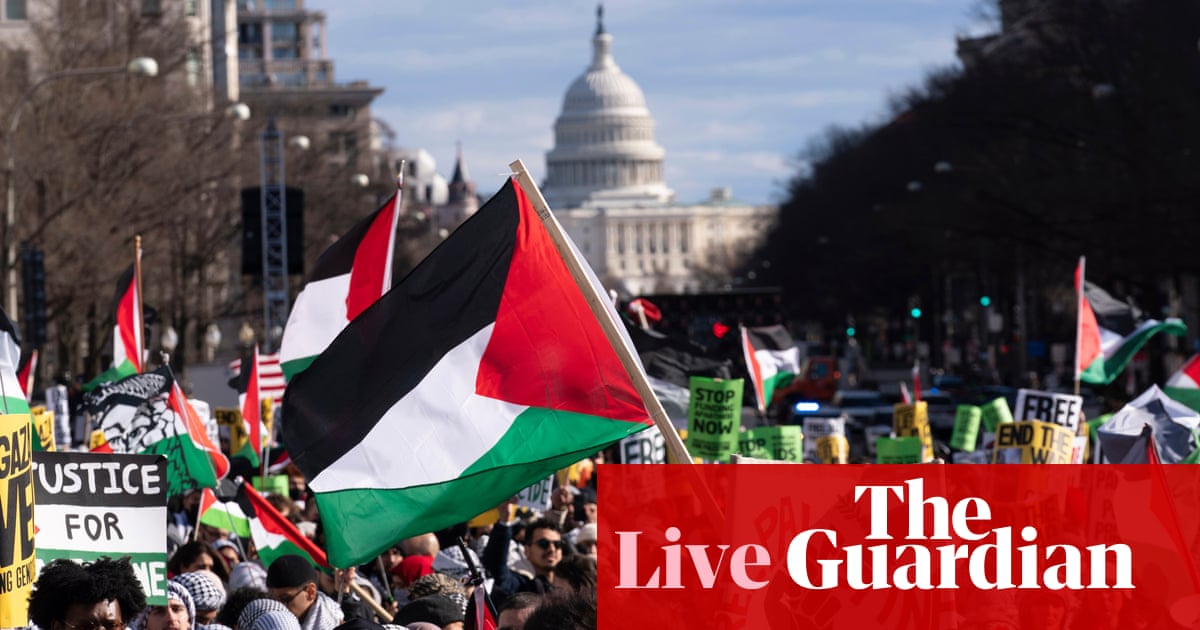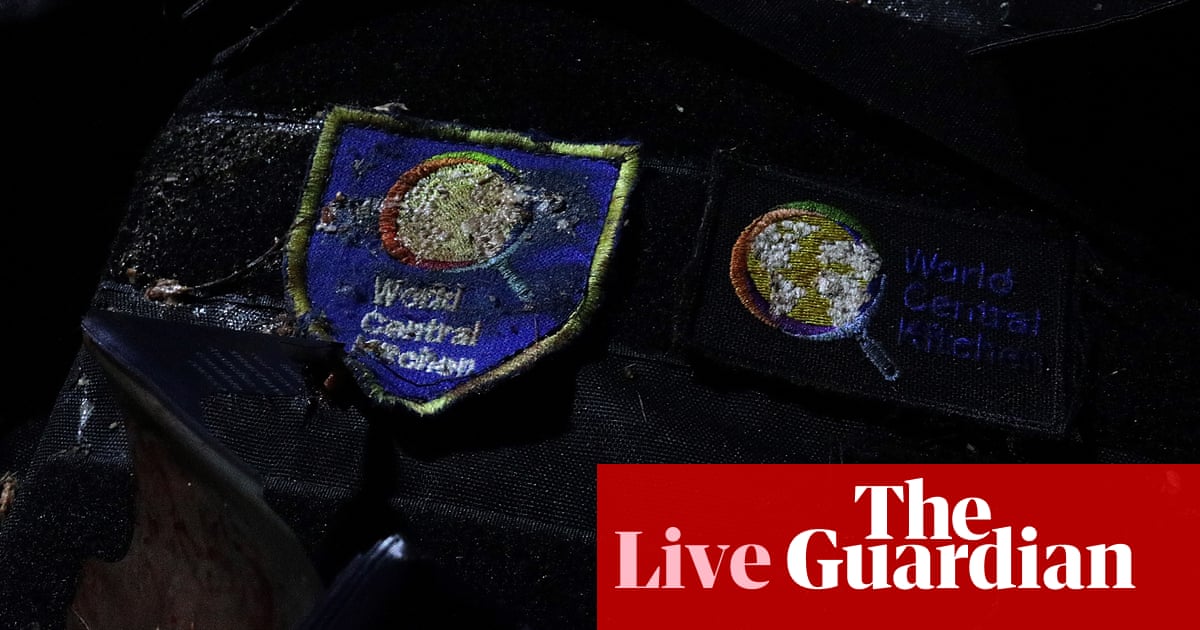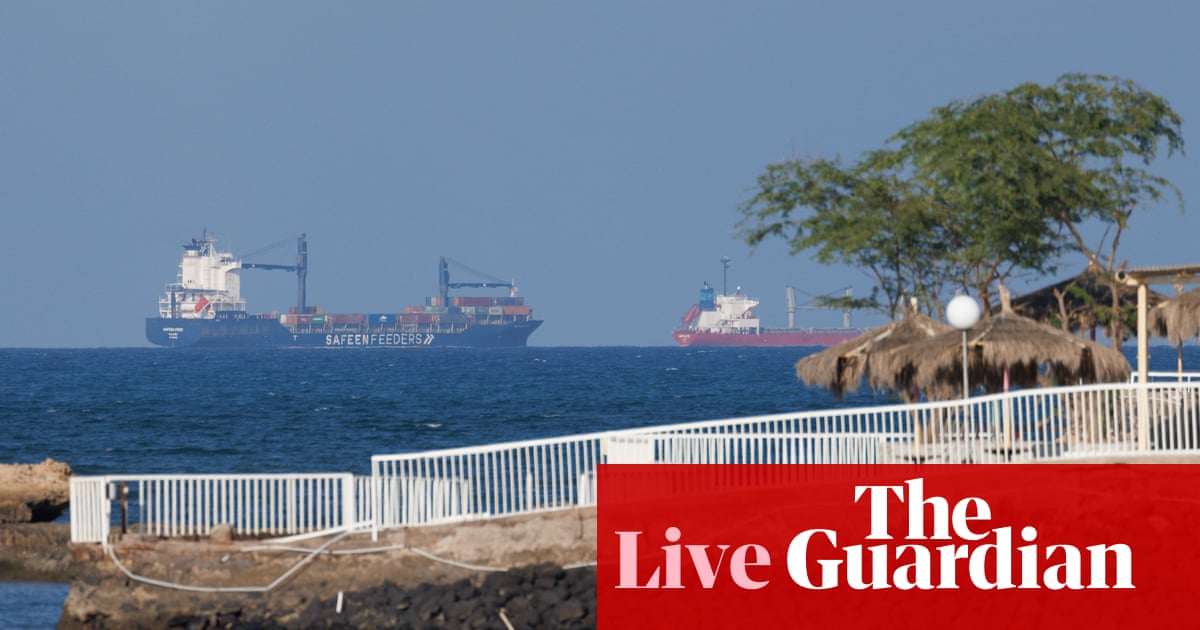
Huge blasts reported in Beirut
Massive explosions have been reported in Beirut, with multiple reports of fighters jets heard over the skies of the Lebanese capital.
Reuters is reporting that a series of loud explosions were heard near Beirut airport.
The news agency’s Timour Azhari shared video of what he said was the latest strikes, which he said appeared even more powerful than the Israeli strikes last Friday that killed Hezbollah chief Hassan Nasrallah.
ITV’s Emma Murphy writes that the target of this latest strike must be significant given the scale of the attack.
Israeli strike hits near perimeter of Beirut airport - report
Here’s more on the latest Israeli strikes on Beirut, where massive explosions were reported around midnight local time.
At least one strike hit outside the perimeter of Beirut’s international airport, Reuters reported, citing a source in Lebanon’s ministry of transport and public works.
A source close to Hezbollah told AFP that Israel launched 11 consecutive strikes on Beirut’s southern suburbs.
The death toll in the Israeli military strike in Tulkarm refugee camp in the occupied West Bank has risen to 18, according to the Palestinian health ministry.
Huge blasts reported in Beirut
Massive explosions have been reported in Beirut, with multiple reports of fighters jets heard over the skies of the Lebanese capital.
Reuters is reporting that a series of loud explosions were heard near Beirut airport.
The news agency’s Timour Azhari shared video of what he said was the latest strikes, which he said appeared even more powerful than the Israeli strikes last Friday that killed Hezbollah chief Hassan Nasrallah.
ITV’s Emma Murphy writes that the target of this latest strike must be significant given the scale of the attack.
Images are coming through the newswires showing smoke over Beirut’s southern suburbs after Israeli strikes on the Lebanese capital.
Imran Riza, the UN’s resident and humanitarian coordinator, urged respect for the rules of war between Israel and Hezbollah in Lebanon, noting that international humanitarian law requires that humanitarians be allowed to access people in need, and that civilian infrastructure and water systems be protected.
“This is what we call for when we’re saying respect the rules of war in this,” he told Reuters on Thursday.
Unfortunately, we are seeing a situation where we have to go back to everybody and advocate for these basics in terms of protecting civilians.
A senior UN official has said that civilians are bearing the brunt of a “truly catastrophic” situation in Lebanon.
Since Israel dramatically ramped up airstrikes in Lebanon more than a week ago, the pace of displacement had exceeded worst case scenarios, Imran Riza, the UN’s resident and humanitarian coordinator, told Reuters on Thursday.
“What we saw from September 23 on is truly catastrophic,” he said, referring to the day when more than 500 people were killed in a single day in Israeli airstrikes. He added:
The level of trauma, the level of fear amongst the population, has been extreme.
About 1.2 million people have been displaced by Israeli attacks on southern Lebanon, the Bekaa Valley, the southern suburbs of Beirut and other parts of the country. Riza said:
You’ve got people being displaced from one place to another, thinking they were going to a safe place, and then that being struck.
The Israel Defense Forces (IDF) said it “precisely struck several weapons production sites” and Hezbollah infrastructure sites in Beirut on Thursday.
In a statement, the IDF said its fighter jets carried out strikes on 15 Hezbollah sites in Beirut.
It claimed it took “numerous steps” to “mitigate the risk of harming civilians”, including using “precision munitions” and aerial surveillance.
The US state department said about 250 Americans and their immediate families, including non-US citizens, have left Lebanon on government-organised contract flights in the past two days.
More than 130 US citizens and family members left Beirut on a flight to Istanbul, US state department spokesperson Matthew Miller said. In addition, more than 100 people left on a similar flight on Wednesday.
The US will continue to organise contract flights as long as the security situation in Lebanon is dire and there is demand, Miller said.
More than 6,000 US citizens have contacted the American embassy in Beirut seeking information about leaving since the conflict between Israel and Hezbollah began to escalate.
Some Americans, many of them dual US-Lebanese nationals and longtime residents of the country, may choose to stay, Miller said. He added that the US embassy is prepared to offer loans to those who choose to stay in Lebanon but need to relocate to a safer part of the country.
The Palestinian health ministry has raised the death toll from the Israeli military strike in Tulkarm refugee camp in the occupied West Bank to 16.
G7 leaders voice "deep concern" over "deteriorating situation" in the Middle East
G7 leaders have released a joint statement where they expressed “deep concern over the deteriorating situation in the Middle East” and called on regional players to “act responsibility and with restraint”.
In the statement, G7 leaders said they condemned “in the strongest terms” Iran’s military attack against Israel earlier this week, which they said “constitutes a serious threat to regional stability.”
“We unequivocally reiterate our commitment to the security of Israel,” G7 leaders said, adding that Iran’s “seriously destabilising” actions in the region “must stop.” The statement said:
A dangerous cycle of attacks and retaliation risks fuelling uncontrollable escalation in the Middle East, which is in no one’s interest.
At least 14 killed by Israeli strike in Tulkarm refugee camp, says Palestinian health ministry
At least 14 Palestinians were killed in an Israeli strike on the Tulkarm refugee camp in the occupied West Bank, the Palestinian health ministry said on Thursday.
A video posted to social media appeared to show the aftermath of the Israeli strike:
As we reported earlier, the Israeli military has confirmed it conducted a strike in Tulkarm, without elaborating.
UN peacekeepers remain in place in southern Lebanon despite orders from the Israeli military to move, Unifil chief Jean-Pierre Lacroix told reporters on Thursday.
The UN peacekeeping body in Lebanon (Unifil) is mandated by the UN security council to help the Lebanese army keep the area free of weapons and armed personnel other than those of the Lebanese state.
Earlier this week, the Israeli military asked Unifil to prepare to relocate more than 5 km (3 miles) from the border between Israel and Lebanon, known as the Blue Line, “as soon as possible, in order to maintain your safety,” Reuters reported.
“The peacekeepers are currently staying in their position, all of them,” Lacroix told reporters.
The parties have an obligation to respect the safety of and security of peacekeepers, and I want to insist on that.
He added that Unifil was continuing to liaise with both countries and that it was “the only channel of communication” between them.
At least five killed in Israeli strike on occupied West Bank city - report
At least five people have been killed in an Israeli military strike on the occupied West Bank city of Tulkarm on Thursday, according to Palestinian news agency Wafa.
Several others were injured after an Israeli airstrike on a popular cafe in the Tulkarm refugee camp in the occupied West Bank, Wafa reported.
The Israel Defense Forces (IDF) confirmed that it carried out an airstrike with a fighter jet in Tulkarm.
The IDF said the strike came amid a joint operation in the area with Shin Bet, and that further details will be provided later.
Israel issues new evacuation orders for Beirut"s southern suburbs
The Israeli military has ordered Lebanese civilians near two buildings in Dahiyeh, in the southern suburb of Beirut, to evacuate immediately ahead of airstrikes.
Israel’s military spokesperson Avichay Adraee published maps alongside the announcement, warning civilians to distance themsevles at least 500 metres from the sites.
Israel’s ambassador to the UN said the country has “a lot of options” when it comes to striking back at Iran in response to Tuesday’s missile attacks.
Danny Danon told CNN on Thursday:
We have a lot of options … so it’s (up to) us to decide where and when we want to attack, but they are vulnerable. They know that.
On Wednesday, Danon told the outlet that Israel would “not sit idly by” after the Iranian attack, adding that Israel would have a “very strong, painful” response.
Danon said Israel did not want to see escalation or war but insisted that it will retaliate against Iran’s large-scale rocket launches. He added:
We would have to make it a calculated response because we don’t want to see full war with Iran. And believe me, they also don’t want to see it. We have shown our capabilities when we fought Hamas in Gaza, and we are fighting Hezbollah in Lebanon. They better look at what happened in Beirut and in Gaza before they start a war with us.
Here are some of the latest images sent to us over the news wires from Lebanon, Gaza and Israel.
Iran summoned the German and Austrian ambassadors on Thursday after their governments rebuked Tehran over its missile attack on Israel earlier this week, Iranian state media reported.
The move was in response to the “unacceptable measures” by Germany and Austria who summoned Iran’s envoys over Tuesday’s missile strike, AFP reported, citing Iran’s state-run Irna news agency.
The Iranian attack on Israel was a “legitimate, responsible and effective response in punishing,” Iran’s foreign ministry said.






